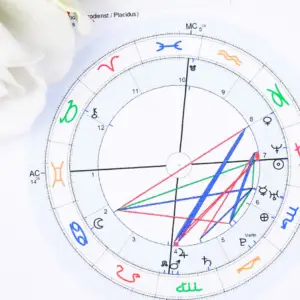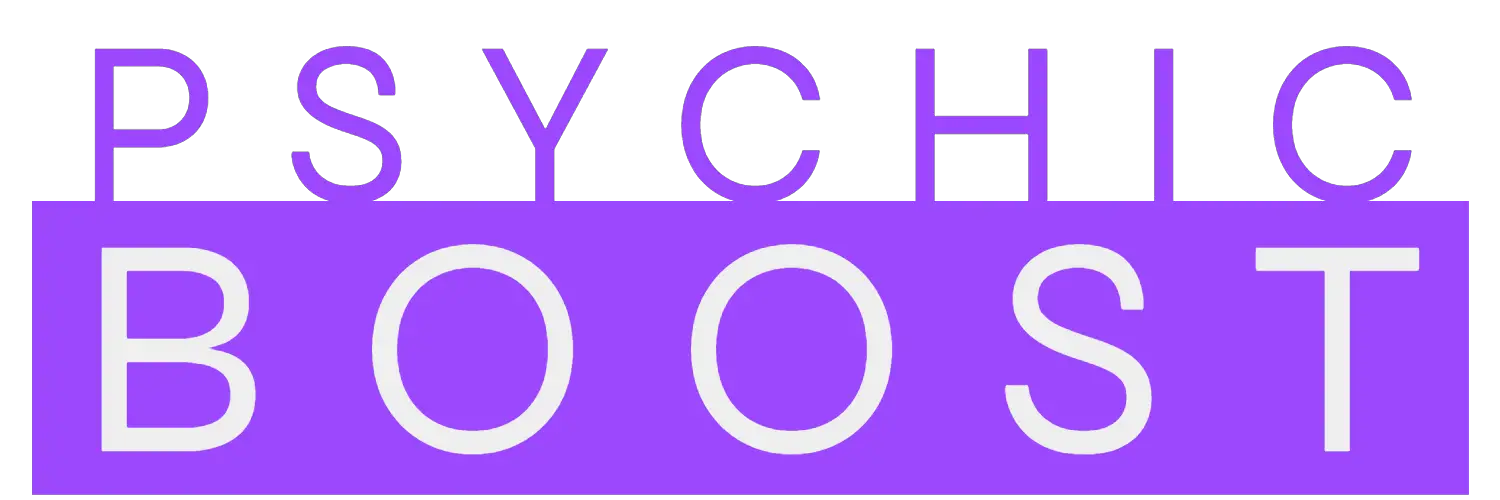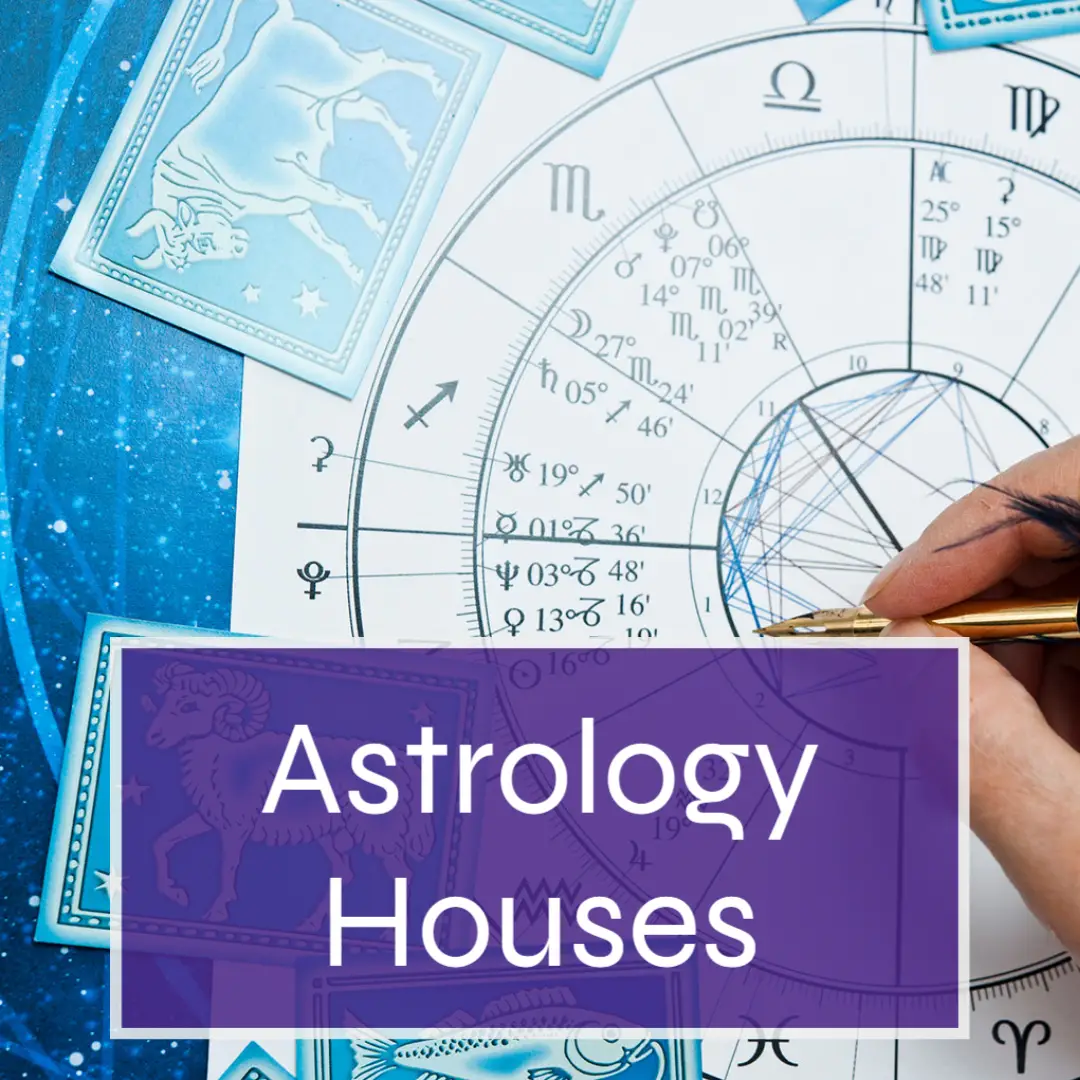Welcome to the magical world of astrology houses! This comprehensive guide is a deep dive into the twelve sectors of your birth chart, known as the astrology houses. These houses form the cornerstone of understanding our unique cosmic identities and the different aspects of our lives they govern.
Through extensive research and in collaboration with astrology experts, we’ve brought together this in-depth exploration of the astrology houses. Rest assured, this is not just another generic guide. We’re all about bringing you quality, accurate information to help you unravel the celestial mysteries of your birth chart.
The Astrological Houses: An Overview
In the zodiac wheel, astrology houses are sectors that depict various facets of your life, from self-identity to your subconscious. The placement of planets in these houses during your birth significantly impacts different spheres of your life.
To decipher your astrology houses, you need your birth chart, a map of the sky at your exact birth moment. If you’re not sure how to find this, we recommend checking out our detailed guide on how to read a birth chart.

Unpacking Each of The 12 Astrology Houses
First House – The House of Self
The first house, also known as the Ascendant or Rising Sign, represents our immediate self, physical body, personality, and general approach to life. It sets the tone for the entire natal chart and describes how we initiate actions and react to our surroundings.
Second House – The House of Possessions
The second house governs our personal resources, including our income, material possessions, and values. It also reflects our self-esteem and sense of self-worth. How we attract wealth, our financial management skills, and our attitude towards personal possessions are all embodied within this house.
Third House – The House of Communication
The third house signifies all forms of communication, our thinking processes, and our immediate environment. It rules over siblings, neighbors, short trips, and all forms of transportation. Our intellectual curiosity, our ability to express thoughts, and our early education experiences fall under this house.
Fourth House – The House of Home and Family
The fourth house, often referred to as the Nadir (IC), signifies our home, family, roots, and emotional foundation. It is associated with our mother or the more nurturing parent and illustrates how we seek comfort and safety. This house also denotes real estate and property.
Fifth House – The House of Pleasure
The fifth house is a vibrant sector of the chart that rules over joy, creativity, recreation, romance, and children. It’s our inner child house that resonates with self-expression, drama, art, games, hobbies, and risk-taking.
Sixth House – The House of Health and Service
The sixth house is tied to daily routines, health, fitness, and work habits. It governs our attitude towards work, service to others, and how we handle daily life responsibilities. Moreover, it reflects our affinity for pets and our approach to maintaining physical wellness.

Seventh House – The House of Partnerships
The seventh house, also known as the Descendant, is about all kinds of partnerships – business, marriage, and long-term relationships. It’s the house of ‘others,’ illustrating how we relate to people, our attitude towards one-on-one relationships, and even our open enemies.
Eighth House – The House of Sex, Death, and Transformation
The intense eighth house rules over matters related to death, rebirth, transformations, inheritances, and shared resources. It’s about merging and sharing on all levels – physical, emotional, and financial. This house also rules over mystical experiences and psychic abilities.
Ninth House – The House of Philosophy
The ninth house, the domain of higher learning and wisdom, governs long-distance travel, higher education, law, religion, and philosophy. This house urges us to explore and expand our horizons, guiding us towards broader perspectives and foreign cultures.
Tenth House – The House of Social Status
The tenth house, also known as the Midheaven (MC), governs our career, public reputation, and life’s purpose. It signifies our ambition, our approach to responsibility, and the ways in which we strive for success.
Eleventh House – The House of Friendships
The eleventh house rules over friendships, hopes, dreams, and group activities. It represents our social networks, community, and collective ideas. This house also governs our long-term goals and how we relate to society.
Twelfth House – The House of Subconscious
The mysterious twelfth house, often referred to as the house of the unconscious, is associated with isolation, spiritual retreat, hidden enemies, and subconscious mind. It denotes karmic lessons, secret fears, and hidden aspects of our psyche that we may not be fully aware of.
The Duality of Astrology Houses: Understanding Polarities
In astrology, there’s a profound sense of balance reflected through the concept of polarities, also known as house opposites. Each house has a direct opposite, forming six pairs of polarities. These pairs balance each other, representing two sides of the same coin. They show how different life aspects are intrinsically tied, revealing the dual nature of our existence.
Let’s further explore this concept with an example:
Fourth House (Home & Family) and Tenth House (Career & Public Image)
The Fourth House represents our emotional foundation, home, and family, focusing on our personal life and private affairs. In contrast, the Tenth House signifies our career, ambitions, and public reputation, focusing on our professional life and public endeavours.
While the Fourth House is about where we come from, including our roots and private life, the Tenth House is about where we’re going in terms of our career and public standing. They are intimately connected; our upbringing (Fourth House) shapes our aspirations and career (Tenth House). At the same time, our public achievements or failures (Tenth House) can affect our family life and emotional well-being (Fourth House).
Understanding this duality helps us strike a balance between our personal and professional lives. It shows that neither house exists in a vacuum and that the health of each depends on the other.
As you delve into astrology, these house polarities provide a more profound understanding of your life’s dynamics and interconnectedness. They help you see that life isn’t segmented but a series of connected arenas where growth and understanding in one area can positively influence another.
House Systems in Astrology
Astrology is a complex field, and one of the areas where this complexity is most evident is in the various house systems used by astrologers. The most commonly used system is the Placidus system, but there are many others, including Koch, Equal House, and more. Each system divides the chart in a slightly different way, leading to variations in house sizes and sometimes the signs on the house cusps.
The house system you choose to use can affect astrological interpretations. For example, in the Equal House system, each house is the same size, and the Ascendant begins the first house, but in the Placidus system, houses can be varying sizes, and the Ascendant can fall anywhere in the first house. The choice of house system can depend on personal preference, the specific techniques you are using, or the traditions you follow.
Related Article: Different House Systems in Astrology
Practical Astrology: How to Use the 12 Houses
By understanding each house, you can gain insights into different areas of your life, from career aspirations to romantic inclinations. Interpreting the position and relationships of planets in these houses can provide guidance for decision-making, self-improvement, and personal growth.
FAQs About Houses in Astrology
Which is the most important house in astrology?
While each of the twelve houses in astrology contributes to our understanding of self and life experiences, traditionally, the First House (House of Self) and the Tenth House (House of Social Status) are often given a lot of importance. The First House represents our immediate self and our general approach to life, whereas the Tenth House represents our ambition, career, and how we present ourselves to the world. However, the importance of a house can vary depending on its occupancy and rulership in your individual birth chart.
How can I know which house is strong in my birth chart?
A house in a birth chart is considered strong or dominant if it is occupied by its ruling planet, contains multiple planets, or has the sun or moon placed in it. Moreover, houses in which planets are in their exaltation, own sign, or friendly sign also gain strength. An astrologer can help you assess house strength in your chart.
Which house is the best for the sun to be in?
The Sun shines brightest in the Fifth House (House of Pleasure) and the Ninth House (House of Philosophy), as these houses resonate with the Sun’s themes of individuality, creativity, and higher wisdom. However, the “best” house for the Sun can vary depending on what aspect of life one is considering.
Which is the worst house to have the sun in?
Astrology doesn’t define any house as the “worst” for Sun placement. However, the Sun in the Twelfth House (House of the Subconscious) can be challenging, as this house is traditionally associated with hidden matters, isolation, and spiritual retreat. This may lead to a person feeling misunderstood or undervalued. Remember, the Sun’s placement simply presents potential challenges to overcome and lessons to learn.
In which house does the moon give the best results?
The Moon flourishes in the Fourth House (House of Home and Family), where it can express its nurturing, emotional energy most naturally. This placement often indicates a strong connection to home and mother, and a deep need for emotional security.
What does it mean when my astrological chart is ‘perfect’?
A ‘perfect’ astrological chart doesn’t exist because astrology reflects the complexity and diversity of human experiences. If all houses and planets are in harmony in a chart (which is rare), it might suggest a balanced personality or life, but it doesn’t guarantee a problem-free life. It’s more about understanding our strengths and challenges and using this knowledge for personal growth.
Next Steps
The astrology houses provide a complex, insightful picture of our life’s trajectory. Each house, with its unique characteristics, acts as a lens to understand our life patterns, potentials, and challenges. By understanding their cosmic symbolism, we can better navigate our journey.
Ready to delve deeper? Check out our guide on how to read a birth chart or consult with an astrology expert for a personalized reading.




1 thought on “The 12 Astrology Houses: Uncovering The Cosmic Blueprint Of Your Life”
Comments are closed.